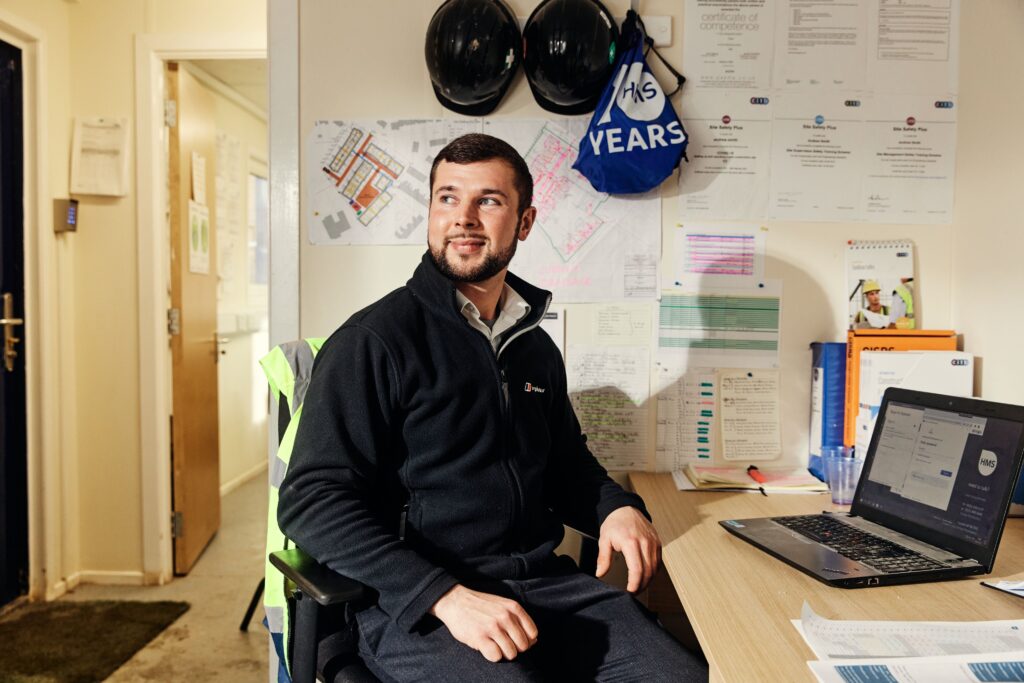CIF partnership
Paul Sheridan, General Secretary of the Master Builders and Contractors Association (MBCA) and Director of Main Contracting with the CIF discusses the integration of collaboration and Procore’s technological innovation on Irish construction projects with Tom Noctor, Senior Product Manager at Procore
According to Paul Sheridan, construction is a pragmatic and innovative industry. The industry is always looking to adjust to local circumstances including technological disruption, while keeping an eye on the bigger picture.
The current picture doesn’t get much bigger in terms of closing Ireland’s infrastructural deficit through the National Development Plan, delivering on Housing For All and meeting our climate objectives.
Paul, points out that the MBCA believes that one of the key pillars to delivering value for money while delivering on these objectives is collaboration.
This will be an essential behaviour on constructions projects, if we are to construct based on whole life cycle value, green procurement, carbon budgeting and the adoption of digitalisation through the Government BIM Mandate from 2024.
The increasing complexity of construction means there are increasing benefits also from having the contractor engaged earlier in the design process.
The question is: how can we leverage Procore’s technology to drive the right behaviours that support collaboration while helping to manage risk, information management and liability across the full project lifecycle from business concept, planning, design, construction, commissioning and operation?
Tom Noctor, Senior Product Manager at Procore offers his views below.

Construction’s opportunity
At the beginning of 2023, Censuswide surveyed over 200 decision-makers in the UK and Ireland for Procore’s benchmark report ‘How We Build Now’: 95 per cent of respondents said they were either somewhat or very confident about construction’s opportunity over the next year.
In response, construction leaders are increasingly embracing technology in order to strengthen resilience.
Our survey shows that 56 per cent of businesses are well on their way with their digital transformation journey, and 28 per cent say economic and industry volatility has caused them to significantly increase investment in digital transformation over the past three to six months.
Why are leaders looking to technology as the key to long-term business success? The UK government’s ‘Construction Playbook’, and the private sector’s companion book, ‘Trust and Productivity’, give a strong clue.
Both stress the vital role technology plays in helping teams work more collaboratively while also boosting productivity, quality and value.
In Ireland, the Office of Government Procurement’s (OGP) reform strategy for the Construction Works Management Framework; including the introduction of the International Construction Management Standards, Carbon Budgeting and the BIM Mandate, also leads to the same conclusion.
And survey respondents seem to agree. When asked what their business could potentially save if data was more efficiently captured, integrated, and standardised, 60 per cent of those surveyed said they believed it would save as much as 20 per cent of their total spend on projects.
Given construction’s historically slender margins, that 20 per cent would represent a huge boost to profitability. (Source: How We Build Now 2023 UK and Ireland Benchmark Report)
New tools for the future of work
For data to be captured and used to boost profitability, the construction industry needs a new set of digital tools. To date, they’ve really not been available, forcing companies to cobble together different solutions and try to make it work.
But platform technology is changing that – providing a single solution where you can manage the entire lifecycle of a project. The How We Build Now report survey respondents agree.
They list construction management platforms as one of the top technologies when it comes to driving positive change over the next few years, along with prefab/modular construction and AR/VR.
These technological advancements can transform day-to-day operations and help businesses better utilise their data straight away.
When you can capture and unite disparate data, you get a real understanding of how your projects and portfolio are performing and can take a proactive, data driven approach to the business.
This data becomes even more important as AI and machine learning become integrated into your systems.
The more data you collect, the more these systems will be able to provide recommendations on how to reduce risk and take the best course of action, swiftly and efficiently.
The path to increased productivity
When asked the best way to improve productivity, 33 per cent of respondents placed ‘implementing best practice process and protocol in preconstruction’ at the top of their list.
Traditionally, preconstruction has been a linear process of design, tendering and build, even in design and build contracting.
Though two-stage design and build procurement is providing the means to build contractors and their suppliers into the process earlier there is still a great deal of scope for the industry and its clients to adopt a more dynamic and collaborative approach to the preconstructon process.
It can reduce the risk to both the client and their supply chains and result in greater value and better quality.
However, this requires significant trust and transparency, which is a problem when so many organisations still rely on email, paper, phones, and siloed software systems. There is a better way.
Leveraging technology in the preconstruction phase brings together key stakeholders, breaking down the barriers between the design and construction teams, and enables everyone to work off a single set of information.
Facilitating this collaboration earlier in the design and construction processes maximises efficiency and streamlines the entire process.
Moving forward: 2024 and beyond
The Irish construction industry will continue to grow in the coming years, however possibly at a less accelerated rate in 2024. It is likely that the industry will continue to face challenges like material costs and talent management.
But reflecting on how we’ve been building, and more importantly, how we can continue to innovate and push construction forward, is what will strengthen business resilience.
Construction management platforms like Procore provide one place for all project information, from preconstruction to handover.
With all data in one location, you increase visibility, efficiency and collaboration which means you can deliver better, faster and greener solutions for your clients while staying profitable. But now is the time to act.
Employing the full benefits of technology will future-proof your business, ensuring you are fit and ready for 2024 and beyond.










